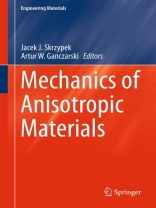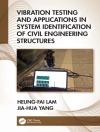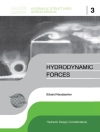The book is focused on constitutive description of mechanical behaviour of engineering materials: both conventional (polycrystalline homogeneous isotropic or anisotropic metallic materials) and non-conventional (heterogeneous multicomponent anisotropic composite materials). Effective material properties at the macro-level depend on both the material microstructure (originally isotropic or anisotropic) as well as dissipative phenomena occurred on fabrication and consecutive loading phase (hardening) resulting in irreversible microstructure changes (acquired anisotropy). The material symmetry is a background and anisotropy is a core around which the book is formed. In this way a revision of classical rules of enhanced constitutive description of materials is required.
İçerik tablosu
1 Introduction to mechanics of anisotropic materials.- 2 Constitutive equations for isotropic and anisotropic linear viscoelastic materials.- 3 Mechanics of anisotropic composite materials.- 4 General concept of limit surfaces – convexity and normality rules, material stability.- 5 Termination of elastic range of pressure insensitive materials – isotropic and anisotropic initial yield criteria.- 6 Termination of elastic range of pressure sensitive materials – isotropic and anisotropic initial yield/failure criteria.- 7 Classification of constitutive equations for dissipative materials – general review.












